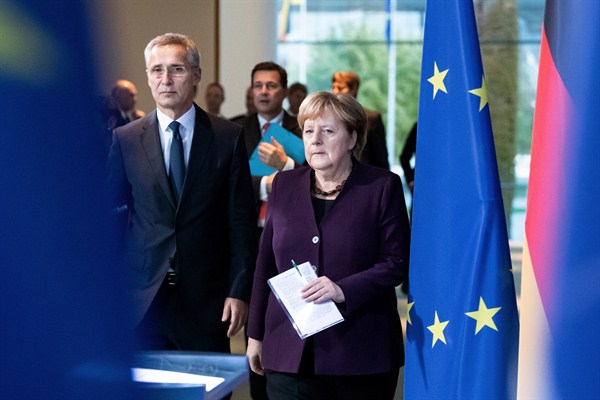When NATO leaders meet next week in London, one phrase will be on everybody’s lips: European strategic autonomy. While the ambiguous concept is open to competing interpretations, its general thrust is clear. It connotes a growing aspiration among many countries in Europe to set their own global priorities and act independently in security and foreign policy, and to possess sufficient material and institutional capabilities to implement these decisions, with partners of their own choosing. The notion is at the heart of President Emmanuel Macron’s vision of a “sovereign” Europe, and of the ambitions of the incoming president of the European Commission, Ursula von der Leyen, to create a “geopolitical commission.”
Strategic autonomy has obvious appeal to Europeans at a time of fraying trans-Atlantic bonds and deepening great-power competition. Aspiring to self-reliance is one thing, however. Achieving it will require much more from the European Union. The heterogeneous bloc will have to develop a coherent strategic culture and come to some agreement on a shared assessment of threats—and on how the EU should pursue its interests and promote its values internationally. Europeans must also reassure the United States that any new EU military capabilities will complement rather than undermine NATO.
Europe’s strategic reappraisal is largely, though not entirely, a function of President Donald Trump. While his predecessors in Washington often pressed the Europeans to ramp up defense spending, Trump has upended the trans-Atlantic alliance in several ways. He has depicted it as obsolete, questioned America’s commitments to NATO’s mutual defense as outlined in Article 5 of the North Atlantic Treaty, and taken precipitous actions without consulting allies in Europe—such as his recent unilateral withdrawal of U.S. troops from northeastern Syria. Confronting such uncertainty, Europeans naturally want to hedge their bets. One way to do so is by developing autonomous military capabilities that permit them to act outside NATO, including with a post-Brexit United Kingdom.

